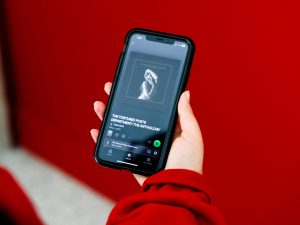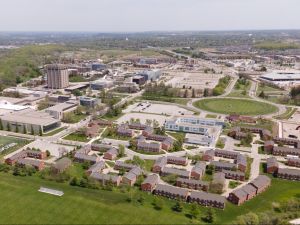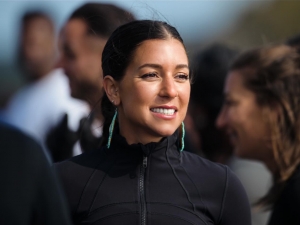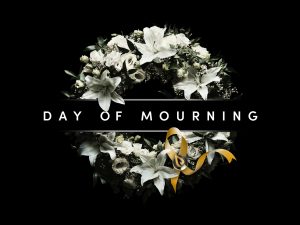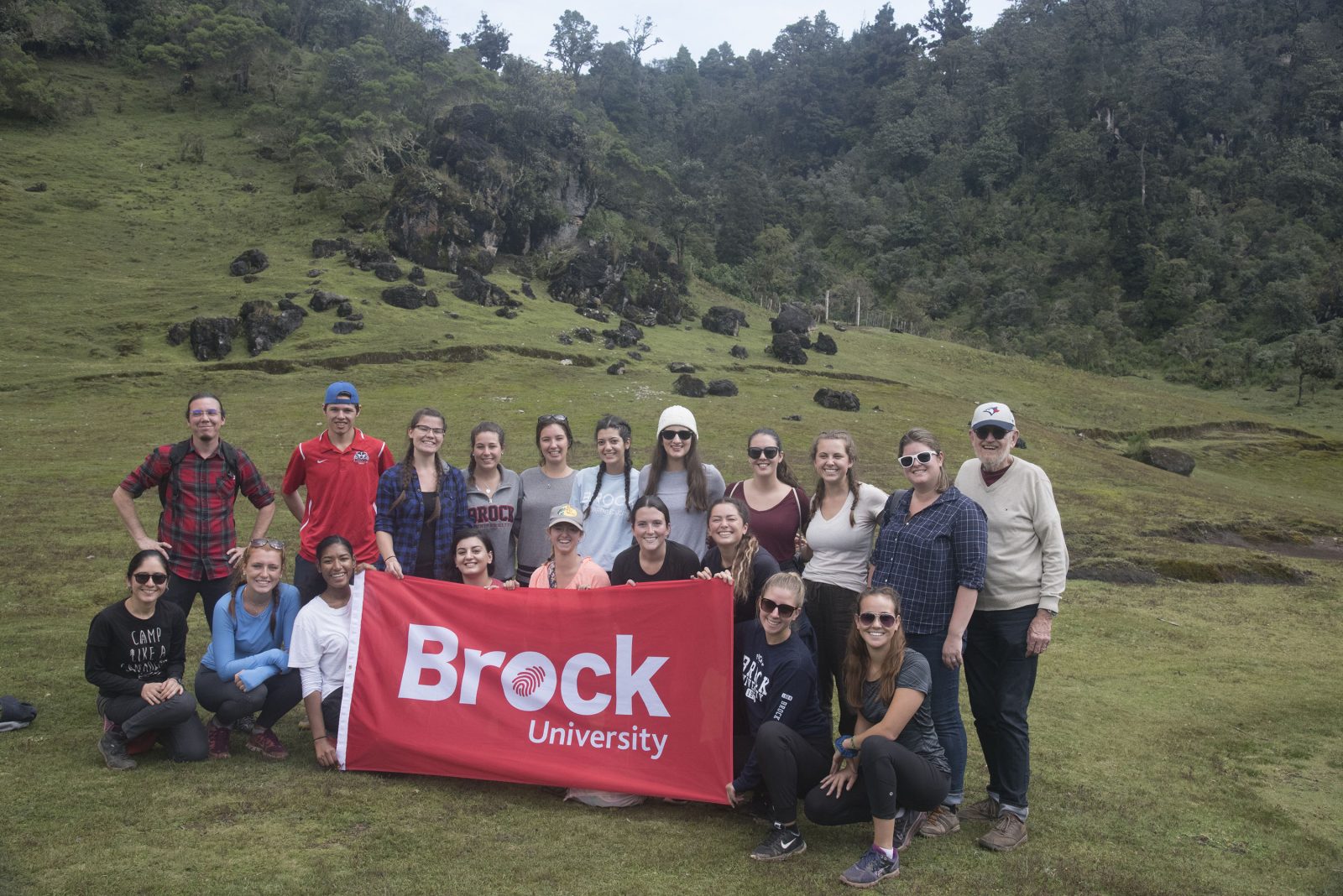 The Brock group visited the Ixil University and participated in a class that took place outdoors in the mountains.
The Brock group visited the Ixil University and participated in a class that took place outdoors in the mountains. For 17 Brock students, Reading Week was an opportunity to explore a new world.
The group of graduate and undergraduate students traveled to Guatemala from Oct. 5 to 15 as part of a Faculty of Education course on global education. Accompanying them were two faculty members and one staff member.
Much of the trip was spent in two regions of Guatemala with indigenous Mayan communities that are striving to preserve their distinct cultures and languages.
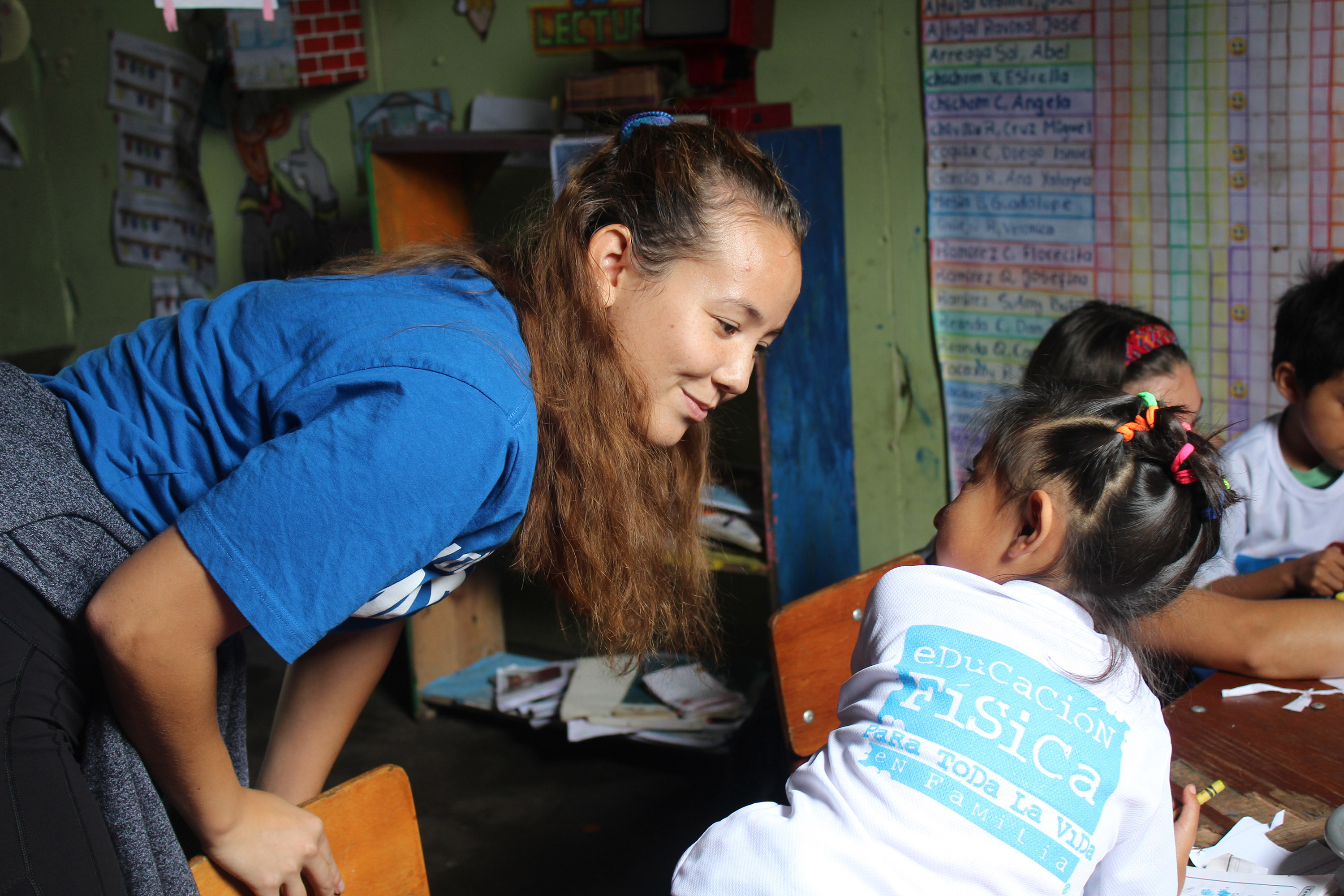
Alysia Nagasuye, a Concurrent Teacher Education student, participating in classroom activities during the group’s visit to a Nebaj elementary school.
“Before this class I had very limited knowledge of what Mayan culture meant,” said Jenny Korkes, a Brock employee and part-time Master of Education (MEd) student. “To see a living, breathing culture and community was amazing, especially because it has such a long history.”
Before leaving for Guatemala, students prepared with assigned readings, videos and in-class discussions of issues such as culture and development.
“We learned the history and the challenges, struggles, violence and everything that they’ve experienced up until this point,” said Korkes. “Learning all of that and then going to see how strong and hopeful they still are, it’s inspiring. But it also makes everything real. These people went through all of these things and they’re still here.”
Korkes’ Assyrian heritage made this experience more meaningful because she could draw parallels to the experiences of her own community and efforts to preserve Assyrian culture.
“One of the highlights for me was the interaction between students and a different culture,” said Cecilia Garcia Vega, Graduate Student Support Co-ordinator and one of the trip organizers. “Seeing how students reflect on different rituals, ceremonies, music, art, food, nature and language made me realize the incredible potential that traveling has as a tool to develop skills that will accompany the student the rest of their life.”
The group toured the Peace Park, the site of a 1990 massacre, attended music and cultural performances and participated in a traditional Mayan smoke ceremony. Students experienced Mayan home life with their host families in the village of Tzalb´al.
The itinerary also included a visit to an elementary school, where students were able engage with local children and observe classroom management practices.
“It was really interesting to see how different their schooling is compared to what we’re used to in North America,” said Olivia Belmonte, a fourth-year Concurrent Education student majoring in French. The classroom management was very different. I find that here, we place a great deal of emphasis on structure and obedience. Whereas, the elementary school that we went to was unstructured and kind of laid back.”
The group had the opportunity to connect with students from a local university created by the Mayan Ixil people to preserve traditional knowledge and create educational opportunities for Ixil youth. Brock students visited an Ixil University class held outdoors in the mountains.
Learning in the community context was an important focus of the trip.
The group toured a coffee plantation and Mayan co-operatives that produce chocolate and craft items. Students were able to participate in hands-on demonstrations of traditional beading and weaving techniques. These activities connected in-class learning with on-the-ground experience.
“I already knew that experiential education was a beneficial thing,” says Belmonte of the trips hands-on activities. “I think this just really emphasized how important it is because it was not only an experiential learning opportunity for myself going into this culture, but I also got to see how experiential learning happened within their culture.”
Wet weather and language barriers created some difficulties for the group. In some areas, double translation from English to Spanish to a local language was necessary to communicate with community members.
“They were able to roll with the challenges, be it rain, modest accommodations and food that was tasty but different than they are used to,” said Michael O’Sullivan of the Brock group.
O’Sullivan is an Associate Professor and Associate Dean, Graduate Student Services, Research and International in the Faculty of Education. He was the trip leader and has a long history of work in the region.
“The learning they soaked in will impact their future teaching practice and will influence their thinking, not just for the duration of the course, but for years to come,” he said.
Belmonte agrees.
“It allowed me to work with individuals who don’t have the same culture as me and don’t speak the same languages as me. That’s something that I think will be beneficial in my future classroom if I have students that come from different backgrounds, perhaps even different countries,” says Belmonte.
For Korkes, the trip has inspired her to further explore her interest in indigenous identity, culture and education through her MEd studies. She is particularly interested in the preservation of indigenous cultures through education.
Both Korkes and Belmonte were able to connect the lessons learned in Guatemala with their knowledge of Indigenous history and experiences in Canada.
“The value of the trip does not end the day the students come back home,” said Garcia Vega. “Experiential learning opportunities like this allow students to expand their horizons, enrich their education, get involved with meaningful causes and reflect on their goals.”

